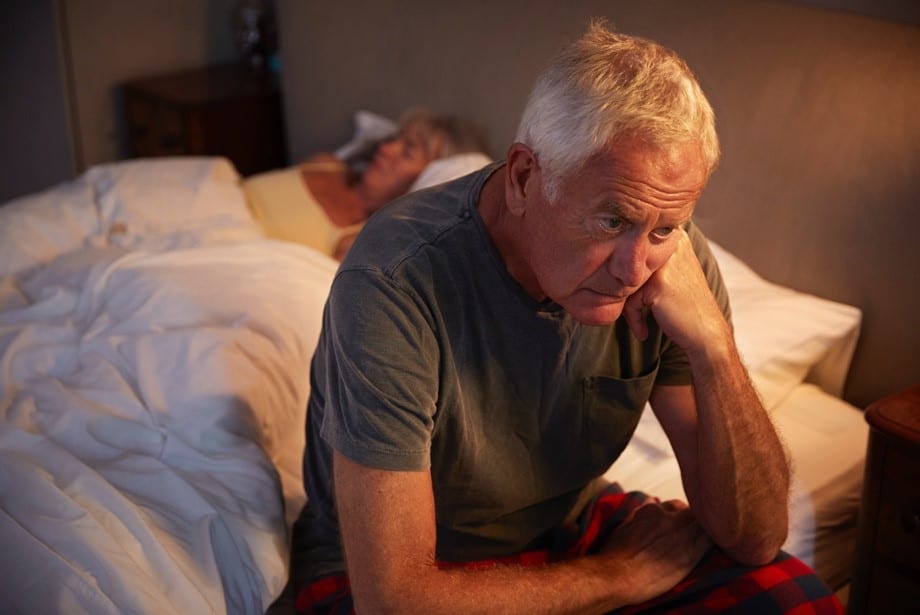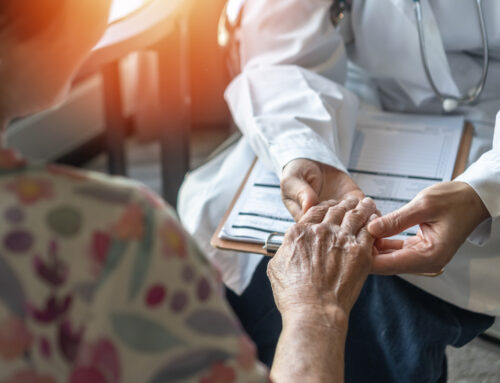Seniors with sleep problems: Bringing your body in line with your needs
For most of us, sleep tends to become a little more elusive with each lap of the Earth around the sun. But the notion that we should simply accept sleep problems as a natural part of the aging process is only partially true. While hormonal changes make us more prone to insomnia, they shouldn’t deter a good night’s rest.
According to the National Institute of Aging (NIA), “Older adults need about the same amount of sleep as all adults—7 to 9 hours each night.” Unfortunately, seniors commonly experience difficulty falling asleep, staying asleep, or falling back asleep after waking prematurely.
How to fight off age-related insomnia
The causes of senior insomnia range from menopause to the decrease in melatonin production generally associated with growing older. Falling asleep is a process; therefore, sleep problems are often remedied by recognizing behaviors that hinder this process, and adapting to those that promote it.
While the thought of adapting might sound insomnia-inducing itself, conditioning your body to fall asleep should be anything but stressful. The following suggestions can help welcome sleep back into your circadian rhythm.
Step outside. It’s important to avoid overexposure to sunlight, but not getting enough can inhibit production of melatonin – a natural hormone crucial for sleep. The National Center For Biotechnical Information recommends 10 to 15 minutes of sunlight without sunglasses each day.
Don’t overdo it. While light during the day can promote a good night’s sleep, in the evening, too much light exposure can disrupt melatonin production. TVs, tablets, and laptops tend to emit a blue light that can keep your body from shifting into sleep mode.
Create the right environment. Your bedroom should invite sleep – a comfortable bed surrounded by cool, silent darkness. Sleep is most likely when the body’s temperature drops to a temperate minimum phase. In other words, cooling down helps you fall asleep.
Don’t force it. The harder you try to sleep, the more difficult it becomes. After around 20 to 30 minutes of lying in bed, if you’re not feeling sleepy, get up. Sometimes retriggering the process of shutting down is necessary, kind of like resetting a timer. Getting out of bed for just a few minutes can help remind your body that it’s time for bed – just limit your exposure to light.
Roll with it. Retirees and others not on a daily schedule might consider reverting to the natural human sleep cycle. Literature written before the invention of artificial lighting often refers to a “second sleep.” Sleeping 7 to 8 hours at a time was not always the norm; our bodies are more prone to two four-hour sleeps over a 12-hour period. Before light bulbs, midnight waking hours were used for visiting neighbors, spiritual exercises, reading and writing, or just staying in bed (assumedly without worrying if one were ever going to fall back to sleep).
Take a warm bath. Not only is hot water relaxing, emerging from it helps drop your temperature down to a zone optimal for falling asleep.
Treat your body right. Exercise can help drain excess energy that can cause nighttime restlessness while elevating your mood and overall health. Too much activity before bed can inhibit sleep, however, so the NIA recommends a three-hour cushion between working out and bedtime.
Drink mindfully. While alcohol might make you feel sleepy, it can actually prevent your body from staying asleep; it also hinders REM cycles.
Avoid dependence on sleep aids. Sleeping pills aren’t intended for long-term use and can lead to dependency.
Remove some of the stress from your life
The loss of mobility and independence – as well as failing to develop a routine – can add stress that prevents sleep. In-home care can help fill in the gaps with services that include everything from meal preparation, transportation, and companionship, to personal care and dedicated nursing care.
FirstLantic has over 17 years of experience caring for seniors in Martin, Palm Beach, Indian River, St. Luci, and Broward counties. For more information on how we can help you or your loved one, fill out our online contact form or feel free to call us directly at 877-618-3624.
Click here for an interesting infographic on sleep facts.
 AVAILABLE 24 HOURS A DAY/7 DAYS A WEEK
AVAILABLE 24 HOURS A DAY/7 DAYS A WEEK Careers
Careers







